
Moradeke Abiodun-Badru
Community Health Work Unions Uncover Hidden Unused, Fully Equipped Healthcare Facility in Umuaji, Nigeria
A team of trade unionists from the Medical and Health Workers Union of Nigeria (MHWUN) and community health workers (CHWs) visited Umuaji community in Delta State on a community outreach. During the visit and discussions with community leaders, they raised concerns about the poor state of the existing primary healthcare facility. Unhygienic conditions, inadequate staffing, and a lack of proper care for patients were among the things they complained about. The CHWs also lamented their insufficient numbers to meet the growing demand for healthcare in the community. The union leaders then inspected the facility, which was cramped into just two small rooms, struggling to serve the entire community. In a shocking revelation, a community member revealed that a new, fully equipped health facility had been built by the government over a decade ago but had never been used.
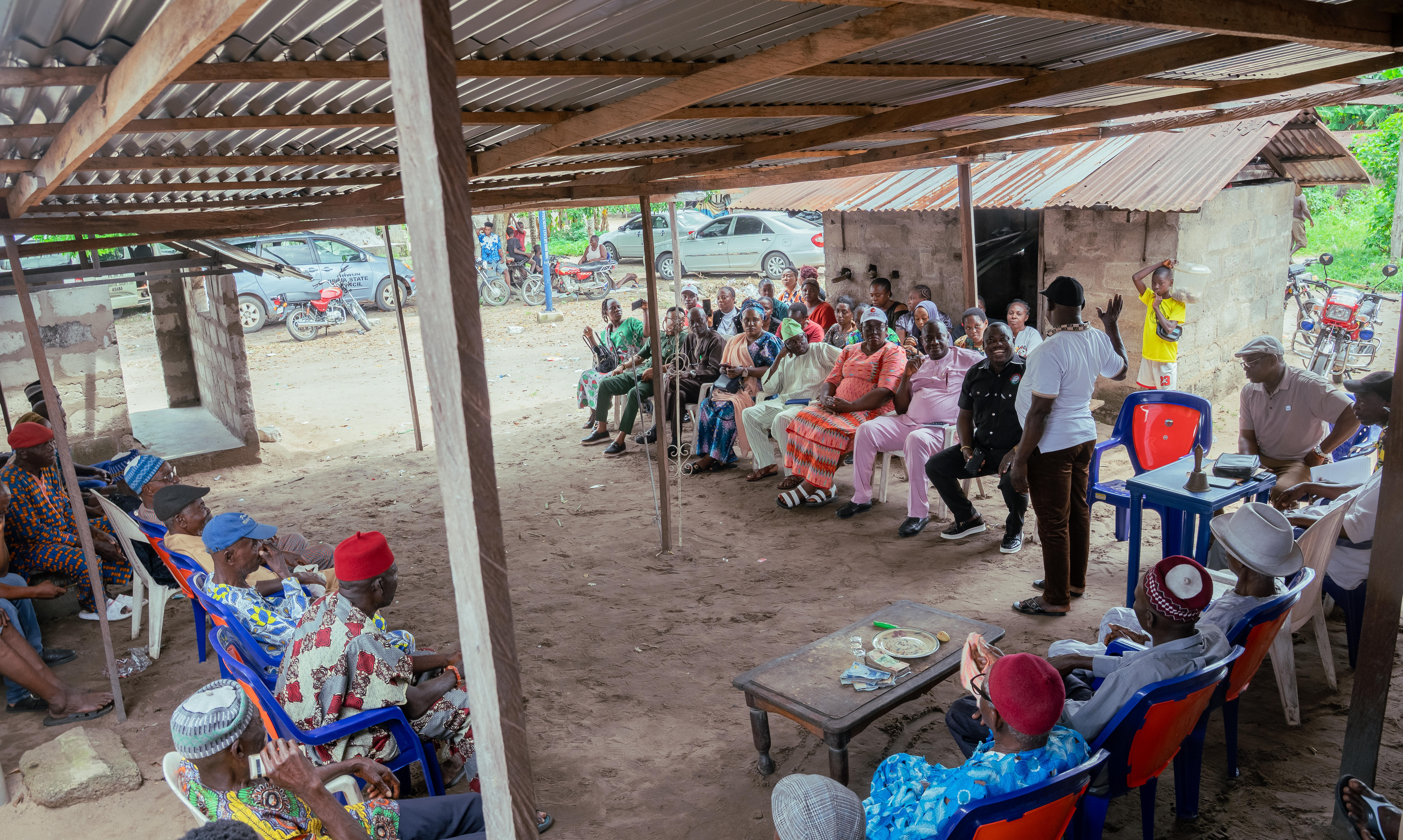
The team immediately demanded to see the abandoned facility, located just 50 meters away from the current cramped-up health centre. The unions swiftly summoned the Ward Councillor, the local government chairman, and even the contractor responsible for the project, who happened to be from the same community. Under pressure, the facility was finally opened for inspection. Surprisingly, the team found a well-built and fully equipped health centre, complete with patient and delivery beds, medical chairs, oxygen supplies, and other essential tools—all locked away and unused for years while the community suffered in a dilapidated space.
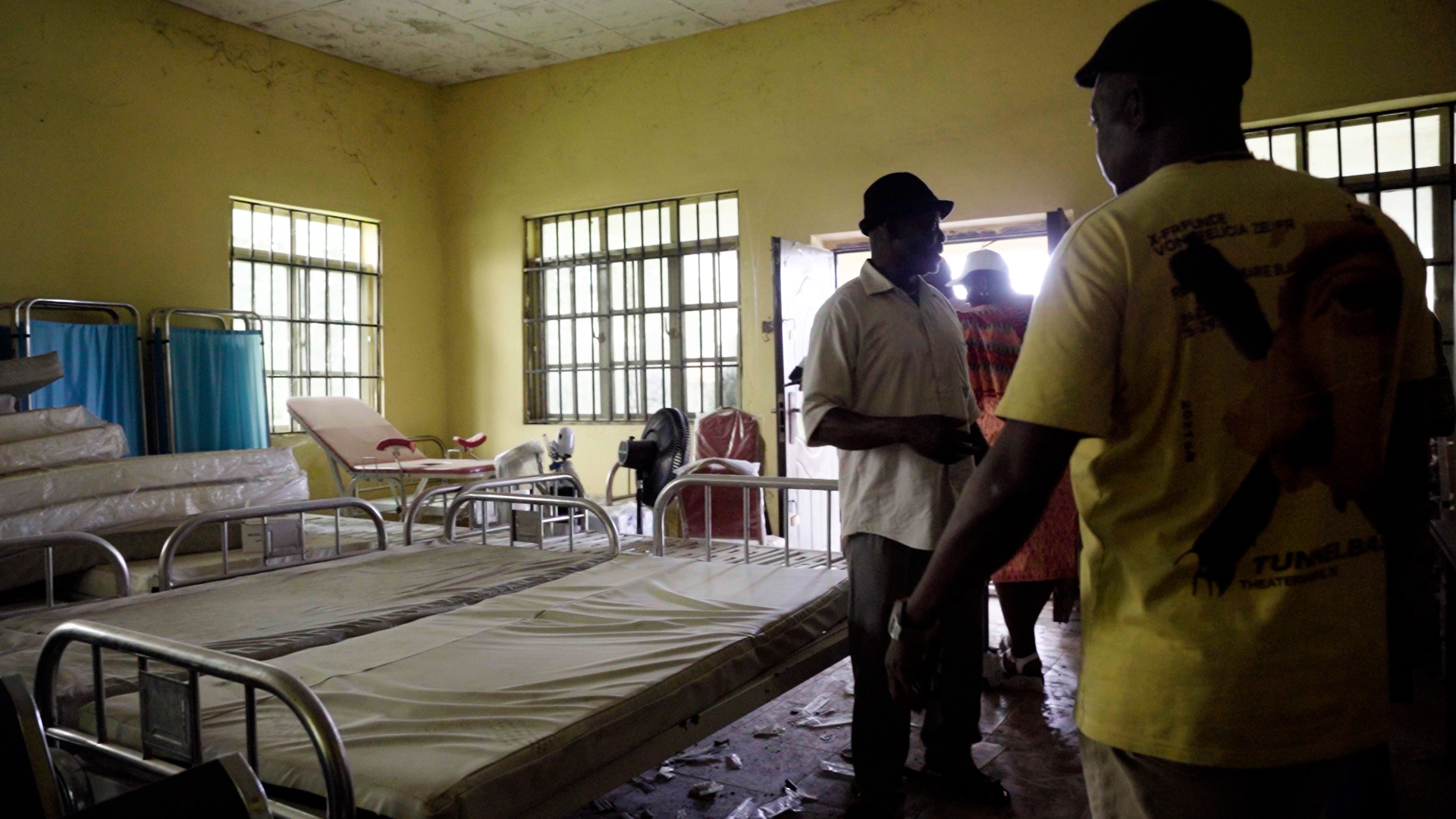
The union leaders demanded the community leaders mobilize the community youth to clear the overgrown grass, clean the facility, and instructed the CHWs to begin operations in the new health facility immediately, ensuring patient-centred care would finally be delivered in a proper environment. What began as a routine community engagement turned into a major victory for healthcare justice, exposing how a few individuals had deprived the community of quality care for years.
Following this breakthrough, CHWs from various primary healthcare centres across Delta State gathered in Asaba for a capacity-building workshop organized by MHWUN and PSI. The training focused on key areas: the role of CHWs as advocates for quality public services, defending workers' rights through social dialogue and collective bargaining (aligned with the ILO Decent Work Agenda), and understanding the political and social determinants of health in Nigeria, with a special emphasis on gender equity in healthcare delivery.
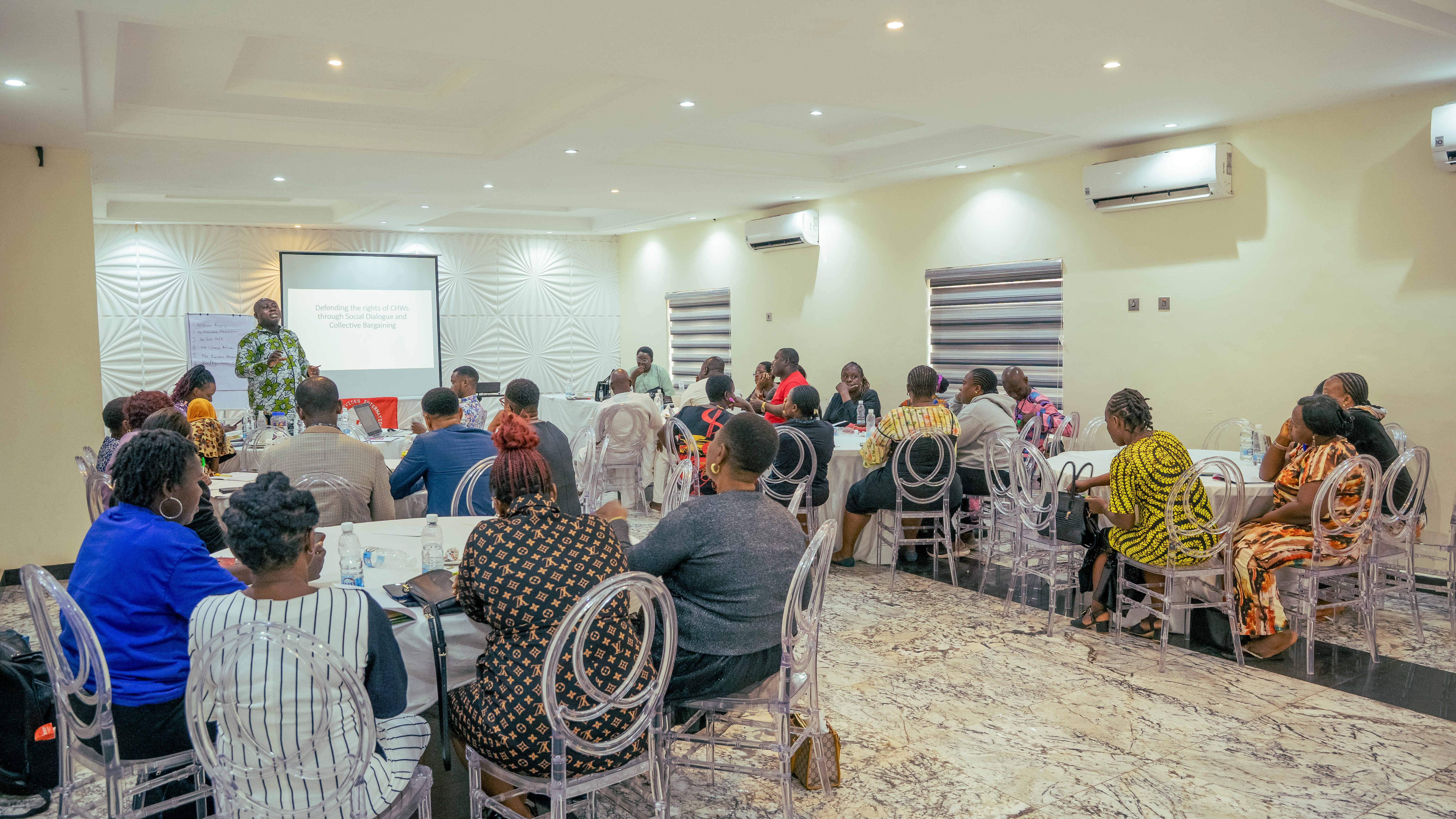
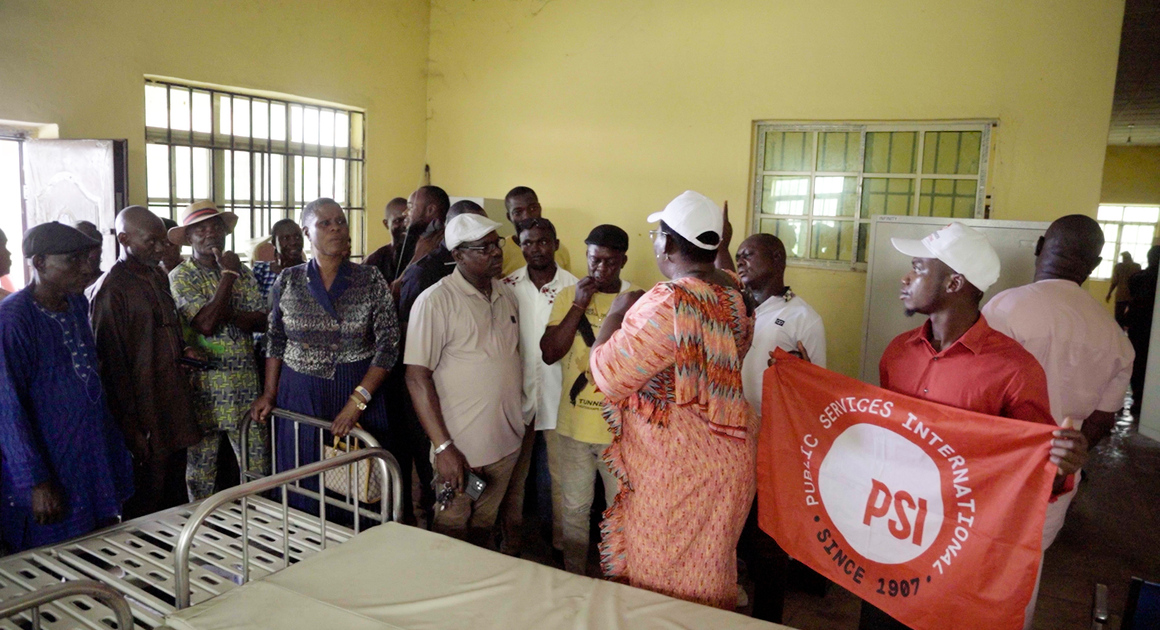
This outreach and training has positioned them to ensure human centred care in their service delivery
On the second day, the CHWs developed advocacy plans based on their experiences from the Umuaji community outreach, equipping them with strategies to engage their communities and demand better healthcare infrastructure. The provision of these infrastructures also means the provision of quality healthcare to communities they serve.
The Delta State Community Health Advocacy Plan developed by participants focuses on improving maternal and child healthcare services through two key initiatives.
The first group will organize an interactive session at Umuaji Primary Healthcare Centre on August 15, 2025, bringing together community health workers and residents to promote quality, patient-centered care. The revelation from the community outreach would also equip them to better address the needs identified. This will be jointly implemented by MHWUN Delta state chapter, Union leaders and Umuaji community.
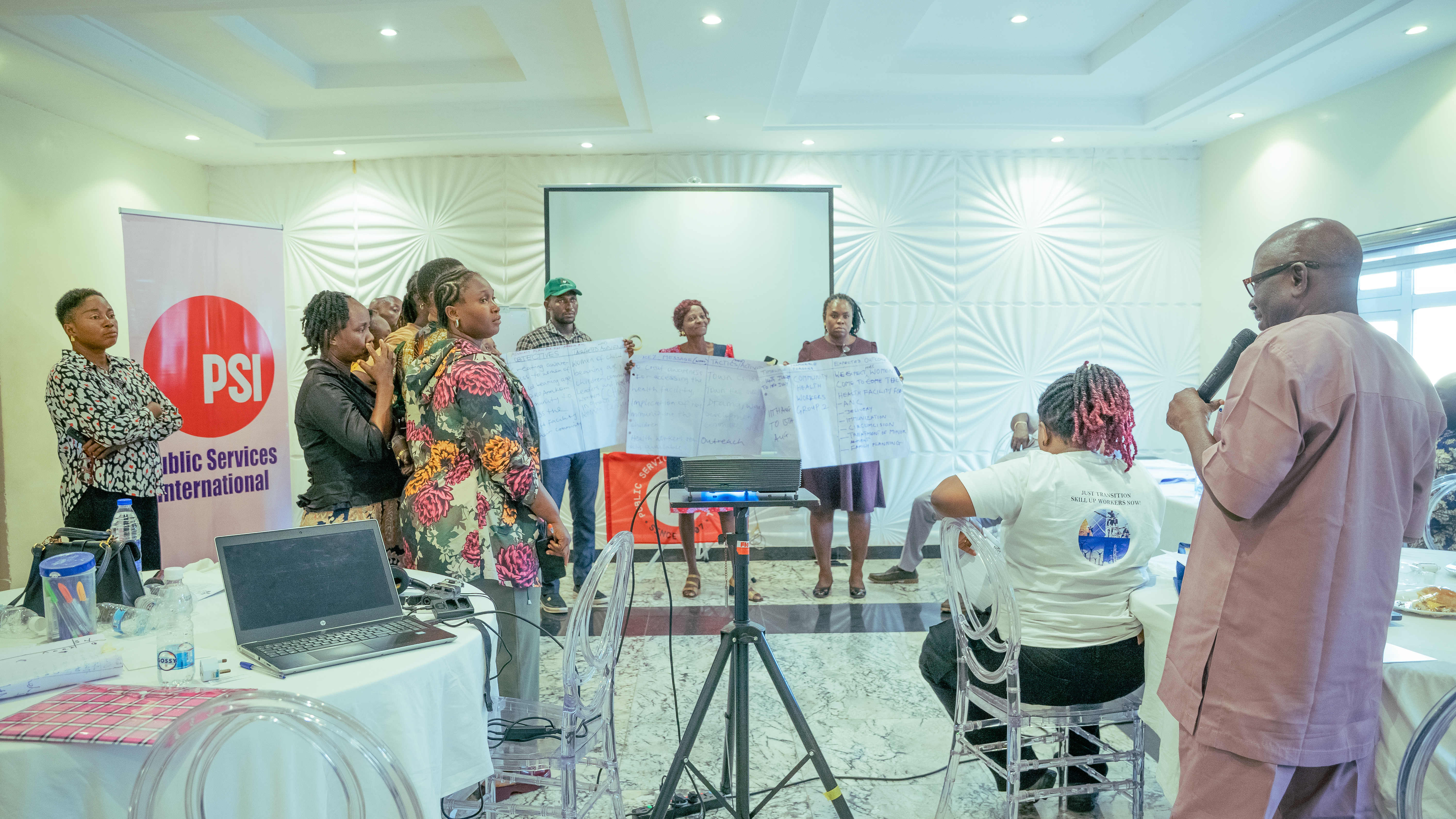
The second group will run a sensitization campaign from August 18-20, 2025 at Oko-Amakor Primary Healthcare Centre, using town criers, drama performances and community meetings to educate women about antenatal care, immunization and family planning services. Their goal is also to promote patient centred care while building relationships with the community to improve mutual understanding between the CHWs and the communities they serve.
Both initiatives rely on CHWs and MHWUN leadership to implement activities, with the cooperation of the target communities, who are expected to provide things like venues. The expected outcomes include increased use of health facilities for deliveries, higher immunization rates, and improved access to treatment for women and children. Follow-up monitoring will track participation and service uptake to measure the outreach’s impact on healthcare access in Delta State communities.
In his remarks, Comrade Barnabas Simon, National Vice President, MHWUN-South South said, "The capacity building of our workers on the ILO decent work and quality service delivery is crucial given what we saw during the community outreach we carried out. This outreach and training has positioned them to ensure human centred care in their service delivery."
Gains and Expected Outcomes
The immediate outcome of this community engagement is already visible.
Umuaji community now has access to a functional, well-equipped health facility after years of neglect.
The CHWs, energized by the training, are now better prepared to advocate for quality primary healthcare services in their communities.
The success in Umuaji sets a significant precedent for union leaders and CHWs in Delta state that they can lead any action and achieve positive results that improve the lives of communities they serve or improve their working conditions.
The project’s goal to organize CHWs in Nigeria and Senegal for decent work and improved service delivery is already gaining momentum. With strengthened skills in advocacy, social dialogue, and community engagement, these health workers are now positioned to effectively advocate for systemic changes, ensuring that no other community suffers due to hidden or abandoned healthcare facilities. It proves that when unions, health workers, and communities unite, positive change is always possible.